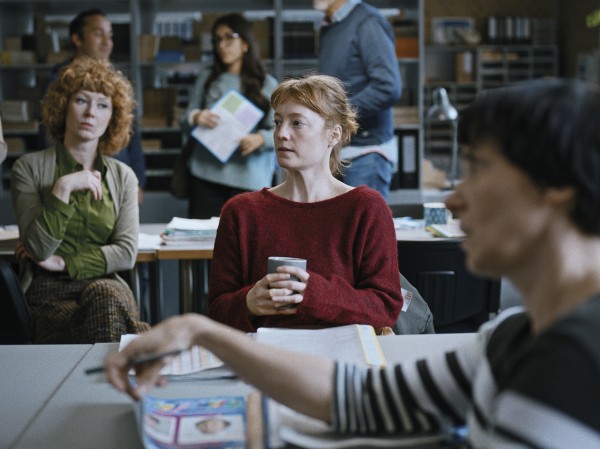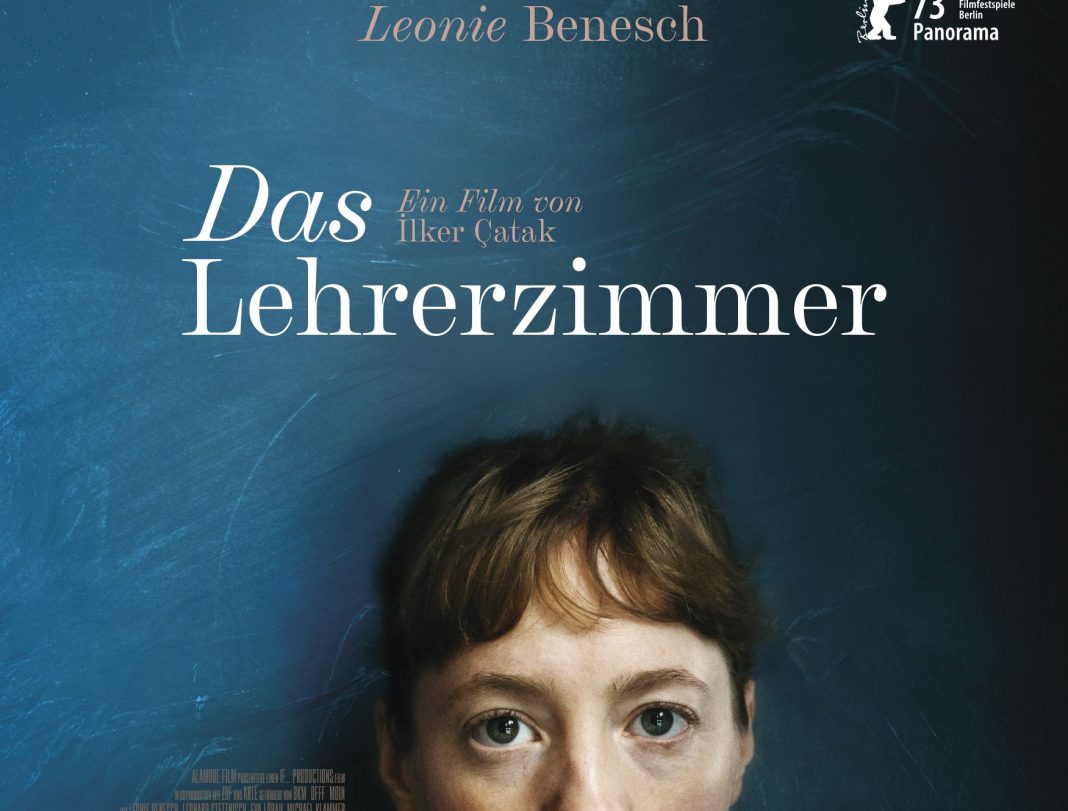This German drama is about a teacher, who tries to find out who has been responsible for a series of thefts from “The Teachers’ Lounge” at her school.
The Teachers’ Lounge (Das Lehrerzimmer ). Starring: Leonie Benesch, Leonard Stettnisch, Eva Lobau, and Michael Klammer. Directed by Ilker Catak. Rated M (Mature themes and coarse language). 94 min.
Review by Peter W. Sheehan, Jesuit Media Australia
The screenplay for the film was co-written by the film’s Director. The National Board of Review named it one of the top five international movies of 2023, and it was nominated for Best International Feature Film at the 96th Academy Awards in 2024. It swept the 2023 German Film Festivals, winning awards for direction, acting, audience appreciation, and editing. The inspiration for its plot-line comes from a series of events that factually occurred.

The film depicts Carla Nowak (Leonie Benesch) as a committed, idealistic young teacher, who is newly transferred to a German secondary school, where students are encouraged to think for themselves. Her school, however, is experiencing an outbreak of stealing, which makes everybody edgy, and she is pressured to identify who is responsible for a series of thefts from “The Teachers’ Lounge”. Carla sets traps in the Lounge to try to flesh the culprit out, and what she does causes substantial resentment.
The film demonstrates how quickly tight-knit communities can be affected by prejudicial opinions and reactions. Carla’s investigation sets off a chain reaction that reveals tensions that implicate herself, her students, and fellow staff members. Characters say the wrong things, while others hide what should be said. The film pointedly illustrates the impact that an over-bearing society can have on its participants, and shows the ills of an ailing society that tries to cloak what is done to hide its wrong-doing. Carla’s school is in a crisis.
The film emerges as an allegory about the impact and influence of an overbearing society that clings to a power it mistakenly thinks has been established safely. The film develops into a compelling thriller movie that is gripping and emotionally powerful. Parents at the school accuse teachers of crimes they did not commit, and one questions whether the students, staff, or parents are ultimately responsible. The movie communicates cultural stereotypes that occur in familiar settings, especially those where it is difficult to discuss what is truly happening.
The film concerns itself less with proof than with inevitable clashes of values and truth, which shape the tensions that permeate the movie. The film addresses personal and social resentments with skill, and communicates its tensions as they mix together. Real-life conflicts contrast freedom of expression with invasion of privacy, misinformation, racism, media persuasion, and institutional control – and it asks viewers to decide who, or what, is to blame.
Peter W. Sheehan is an Associate of Jesuit Media


